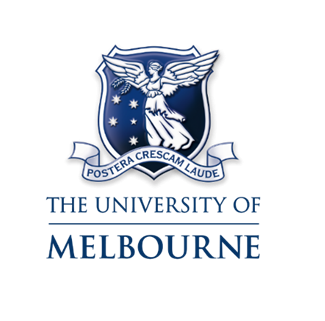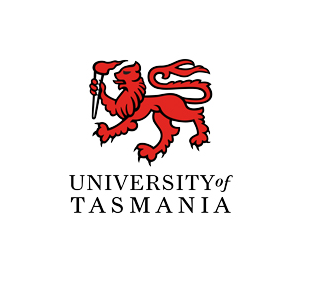By Mackenzie Coopman | June 2024
While getting a tertiary education offers some fun social aspects and provides a great opportunity to learn more about what you are interested in, it is important to consider that going to university will ultimately help you get a job. This seems obvious, but I often meet people who have recently finished their degrees only to realise that they don’t want to work in the field which they were studying in.
When I was choosing which degree I was going to do I thought long and hard about how this would impact me in the future. I wanted to choose something which I wouldn’t regret later, and which would keep my options open while still providing me with a sense of direction.
I grew up in Canberra and never had to think about primary production systems beyond what happened in the supermarkets. Much to my current dismay, all through primary and high school I never had any education about food production systems. This led to me building up a stereotype in my mind of what it meant to be a farmer. Now, in speaking to friends not involved in the industry, I realise that the idea of being involved in food and fibre production systems is widely associated with an outdated caricature reminiscent of Old McDonald. These anecdotes highlight a disconnect which is easily observable between urban populations and an industry upon which we all rely. It goes without saying that my peers were surprised to hear that I would be moving to Adelaide and studying a Bachelor of Agricultural Sciences. Truth be told, I feel as though I fell into this degree by luck.
I had originally wanted to study a Bachelor of Business or Economics, but the theory heavy course load did not seem compatible with my desire to be more practical and hands on. I then explored a Bachelor of Science to follow a passion which I had developed for biology in years 11 and 12 much thanks to my favourite teacher. However, I could not understand how this would translate into a job without further studies beyond a bachelor’s degree. Finally, I stumbled upon the Bachelor of Agricultural Sciences which I saw as an opportunity to combine my passion for biology with the practicality of a business degree. It also helped that the fees for this degree are heavily subsidised by the Australian Government because of the demand for people in the food and fibre industry.
My first year of studies was a bit of a shock. I found that there is distinct difference between people who are raised in the country and people who have lived in cities their whole lives. People tell me that they were discouraged from studying agriculture because they are not from a farm. Now that I am in my third and final year, I can see that socialising and interacting with people who are different from myself has been a valuable experience. In some regards it has swayed my opinions, and in others it has challenged my views allowing me to understand them better.
But that is just my experience. Because everyone has a different point of view, I thought that it might be valuable to get some other opinions. And here they are!
Caleb Schwartz is a second-year Bachelor of Agricultural sciences student from Waterloo South Australia.
“My decision to pursue a higher education within agriculture stemmed from a couple of different influences. I have always been very involved in my community through things like sporting clubs. They say it takes a village to raise a child and for me, this was very much the case. However, even in my lifetime, I have seen my community begin to decline in a pattern similar to other regional areas. I think that agriculture has a big part to play in stopping this. It is my goal to be a part of the solution and I see a degree in Primary Industry as a steppingstone towards achieving this. I have developed a fascination for biology and the natural world and by growing up immersed in agriculture, I can see where these two fields overlap. My degree allows me to ever-expand my knowledge and thinking in these areas. I also have a love of learning and the agriculture industry is such an important and dynamic space that allows for continuous learning. I’ve heard people say, ‘Growing food isn’t rocket science, it’s much more complex than that!’. It’s a very noble profession to contribute to society by producing food and fibre. I have a real passion for leaning how this can be done sustainably and I think the degree is a way I can achieve this.”
Aleah Bakota is a third year Bachelor of Agricultural sciences student who grew up in the city.
“Choosing something to study after high school was incredibly daunting for me. Growing up in the city, you meet so many people with so many backgrounds. All my high school friends went in completely different directions, and it made me feel like there was an absolute realm of endless possibilities. Back in high school, when I was speaking to my career’s advisor, I told her that I had no idea what I was going to do with myself. That’s when she suggested Agriculture. She said, ‘Did you know there’s five jobs for every graduate?’ Agriculture? All I could picture was me standing in a field of barley. In my ignorance I politely declined. Then, when I started to investigate, I saw the incredible opportunities and developments within the Primary Industries. I had always been interested in science, and after seeing how many directions it could take me in, I applied. With no property to my name, I felt out of my depth. However, growing up as a second-generation Croatian in Australia, I have always had a deep sense of community. I find that this extends into Agriculture between every student and individual.”
Arnav Gupta is a third year Bachelor of Agricultural sciences student from India who travelled to Australia to pursue his studies.
“I chose to study Agricultural Sciences because I’ve always been fascinated by how much agriculture influences the economy and daily life. I find that this is especially true in India where agriculture is a key part of our culture. With the numerous challenges facing the primary production industry like fluctuating weather patterns and traditional farming techniques, I see a huge opportunity for improvement and innovation.
Studying this field abroad opens ways to learn about advanced agricultural technologies and business models that could transform farming practices back in India. I’m particularly excited about using this knowledge to develop sustainable and profitable farming solutions. By integrating modern science with smart business strategies, I aim to boost agricultural productivity and economic stability back home. It’s not just about growing crops; it’s about cultivating better business practices that can uplift entire communities.”






